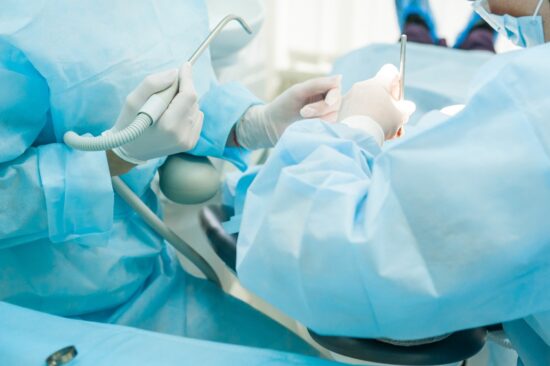The field of oral cancer diagnosis and treatment has advanced significantly in recent years, with biomarkers emerging as critical tools in the early detection and personalized treatment of this challenging disease. Understanding the role of biomarkers in guiding clinical decisions allows oral surgeons to offer tailored strategies that enhance patient outcomes. David Webb Oral Surgeon emphasizes the transformative potential of biomarkers in refining diagnostic accuracy and targeting therapy more effectively.
The Importance of Early Detection
Early detection of oral cancer is paramount, as it significantly improves survival rates and reduces treatment morbidity. However, conventional diagnostic methods, such as visual examinations and biopsies, often rely on identifying lesions that are already visible or symptomatic. Biomarkers bridge the gap between suspicion and confirmation by identifying molecular changes in cells and tissues before clinical manifestations appear.
For high-risk populations, biomarkers serve as invaluable indicators of cellular changes caused by risk factors such as tobacco use, alcohol consumption, and HPV exposure. Their ability to detect disease in its nascent stages underscores their importance in routine screening protocols for oral surgeons.
Biomarkers and Their Role in Diagnosis
Biomarkers are measurable biological indicators that signal the presence or progression of disease. In oral cancer, these may include genetic, epigenetic, proteomic, or metabolomic changes that distinguish malignant cells from normal tissue. For oral surgeons, leveraging biomarkers involves integrating them into diagnostic workflows to improve the precision of detection and reduce false positives or negatives.
The use of salivary biomarkers, for example, has gained attention due to its non-invasive nature and accessibility. Proteins, DNA, and RNA extracted from saliva can reveal specific mutations or molecular changes associated with oral cancer. These advances are transforming saliva from a diagnostic tool into a goldmine of information for early detection.
Personalized Treatment Through Biomarker Analysis
Biomarkers also play a pivotal role in personalizing treatment strategies for oral cancer patients. By analyzing the molecular profile of a tumor, oral surgeons and oncologists can identify specific pathways driving the malignancy. This information enables the selection of targeted therapies that disrupt those pathways, improving the efficacy of treatment while minimizing side effects.
Moreover, predictive biomarkers help determine a patient’s response to certain treatments, such as chemotherapy or immunotherapy. This level of precision reduces the trial-and-error approach often associated with cancer treatment and ensures that patients receive interventions tailored to their unique biological profile.
Challenges in Implementing Biomarker-Based Strategies
Despite their promise, integrating biomarkers into routine clinical practice presents challenges. The cost and accessibility of advanced testing methods can be prohibitive for some patients and healthcare systems. Additionally, the interpretation of biomarker data requires specialized training and a multidisciplinary approach involving pathologists, molecular biologists, and clinicians.
Standardization across laboratories and institutions is another hurdle. Variability in testing protocols can lead to inconsistencies in results, complicating clinical decision-making. As the field evolves, oral surgeons must advocate for streamlined guidelines and collaborative research to overcome these obstacles.
The Future of Biomarkers in Oral Cancer
The future of biomarker research holds immense potential for revolutionizing oral cancer care. Emerging technologies, such as next-generation sequencing and artificial intelligence, are enabling the identification of novel biomarkers and refining their clinical applications. As these tools become more widely available, oral surgeons can expect a paradigm shift toward even earlier detection and more precise treatments.
Epigenetic biomarkers, which reflect changes in gene expression without altering the DNA sequence, are particularly promising. These markers provide insights into how environmental factors and lifestyle choices influence cancer development, offering new avenues for prevention and intervention.
Collaborative Approaches to Advancing Care
Collaboration among researchers, clinicians, and policymakers is essential for advancing the integration of biomarkers into oral cancer care. Funding for biomarker research and initiatives to increase public awareness of their benefits can drive adoption and innovation. Oral surgeons play a key role in advocating for these advancements, ensuring that their patients have access to the latest diagnostic and treatment options.
By participating in clinical trials and contributing to data collection, oral surgeons can also help refine the utility of biomarkers and accelerate their translation into everyday practice. These efforts, combined with technological advancements, are paving the way for a more informed and effective approach to oral cancer management.
Final Thoughts
Biomarkers are reshaping the landscape of oral cancer diagnosis and treatment, offering unprecedented opportunities for early detection and personalized care. By incorporating these molecular tools into clinical practice, oral surgeons can improve diagnostic precision and treatment outcomes for their patients. As emphasized by David Webb Oral Surgeon, the integration of biomarkers represents a transformative step toward reducing the burden of oral cancer and enhancing the quality of care provided.
The ongoing evolution of biomarker research promises a future where oral cancer can be detected earlier and treated more effectively, ultimately saving lives and improving patient experiences.
